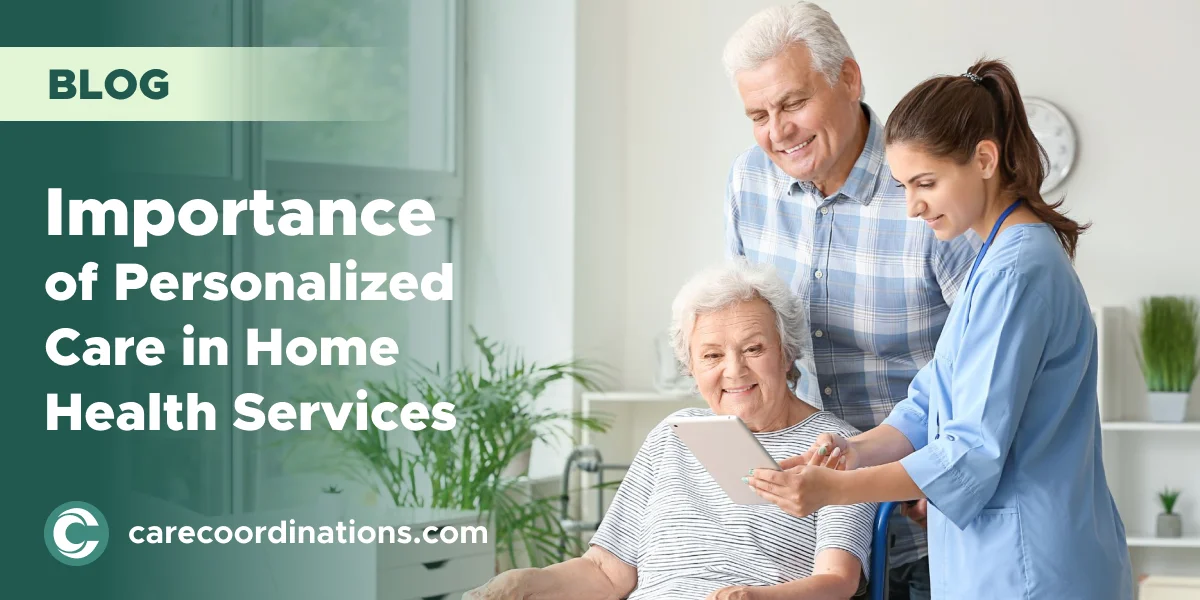In today's fast-paced healthcare environment, quality of care is more important than ever. One avenue through which enhanced patient care is achievable is personalized home health services. Utilizing tailored home health care solutions not only elevates the standard of care but also optimizes patient outcomes. Offering a bespoke approach to healthcare is no longer an option but a necessity in the modern landscape.
The Crucial Need for Personalized Care in Home Health
Every individual comes with a unique set of healthcare needs, shaped by their lifestyle, medical history, and present conditions. When home health services cater to these specific needs, it can revolutionize the healthcare experience. The upswing in demand for such services comes from their alignment with the contemporary patient's aspirations for comfort, convenience, and care.
The Impact of Personalized Care in Home Health Service
1. Enhanced Patient Experience
Customized care plans designed around the patient's specific needs result in a better healthcare experience. Personalized care takes into account the patient's unique medical history, current health conditions, and future needs, providing a roadmap for effective treatment.
2. Efficient Resource Utilization
By tailoring healthcare services to the patient, providers can make more efficient use of their resources. Personalized care eliminates unnecessary treatments, tests, and medications, thereby reducing wasteful healthcare costs.
3. Improved Patient Outcomes
Personalized home health services facilitate better communication between patients and healthcare providers. This improved rapport enhances the accuracy of diagnoses and the effectiveness of treatment plans, leading to better patient outcomes.
The Growing Significance of Home Health Services
Home health services have emerged as a critical component in the healthcare continuum. The demand for home-based care is on the rise, as more people prefer to receive medical care in the comfort of their homes. This model of care is especially beneficial for aging populations, patients with chronic conditions, or those recovering from surgeries or illnesses.
Challenges in Home Healthcare and the Role of Technology
1. Navigating Home Health Care Challenges
As the healthcare sector evolves, home healthcare, while promising, comes with its own set of challenges. For instance:
a. Care Coordination
As patients transition from hospitals to care at home, there's a need to ensure seamless communication among various healthcare providers to avoid any gaps in care. A study by CMS highlighted the significance of effective care coordination and its impact on patient outcomes.
b. Skilled Staffing
With the rise in demand for home health services, there's an increasing need for well-trained, competent caregivers who can provide specialized care.
c. Regulatory Compliance
Home health agencies have to navigate a myriad of regulations and ensure they remain compliant to deliver safe and effective care.
d. Patient Monitoring
Continual monitoring of patients, especially those with chronic conditions or those recovering from surgeries, can be demanding in a home environment.
e. Family and Caregiver Support
Often, family members play the role of caregivers. They need proper training and support to ensure they can adequately care for their loved ones.
2. Incorporating Technology to Address Challenges
The increasing integration of technology in healthcare offers promising solutions to these challenges.
a. Remote Patient Monitoring (RPM)
Devices can now track vital stats in real-time, alerting caregivers or medical professionals of any concerning changes, ensuring patients are continually monitored without being in a hospital.
b. Mobile Health Apps
These applications not only assist healthcare providers in managing their tasks and patient records but also help patients track their medications, appointments, and overall progress.
c. Virtual Training
For family members transitioning into caregiver roles, virtual training sessions can equip them with the necessary skills without the need for physical classes.
d. Telemedicine
It breaks the barriers of commute, allowing patients to consult with specialists or get second opinions without leaving their homes.
e. Automated Compliance Tools
To navigate the intricate web of regulations, many agencies are now turning to automated tools that guide them on compliance, ensuring they remain on the right side of the law while delivering care.
Why Choose Care Coordinations?
1. Comprehensive Medical Home Health Care
Care Coordinations simplifies intricate patient care, seamlessly managing tasks with real-time updates on varied devices.
2. Unified Communication
It stands as a nexus for healthcare collaboration. Sharing patient insights, aligning treatment strategies, and ensuring cohesive care are made effortless on its HIPAA-compliant platform.
3. Aid with Compliance
Customized templates and workflows adhere to home health regulations, ensuring detailed care documentation, thus minimizing non-compliance risks.
4. Enhanced Communication
Secure messaging and video features link caregivers, patients, and families, ensuring comprehensive support at their fingertips.
5. Efficient Goal Tracking
Monitoring progress, informed decisions on re-certifications, and prompt discharges ensure streamlined billing and reimbursements.
Ready to see Care Coordinations in action? Schedule a demo today.
Concluding Thoughts
Personalized care in home health services is not optional but a requirement for enhancing patient care and outcomes. The offering of home healthcare solutions allows for a higher level of customization and efficacy in the healthcare services provided. With the landscape of healthcare continually evolving, personalized care stands out as a cornerstone in delivering quality, patient-centered care.
By understanding the critical role of personalized care in home health services, providers can offer better quality and more efficient care, ultimately improving the healthcare experience for everyone involved.


